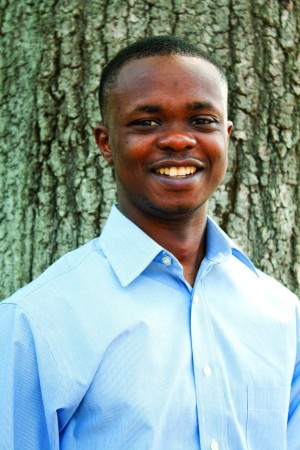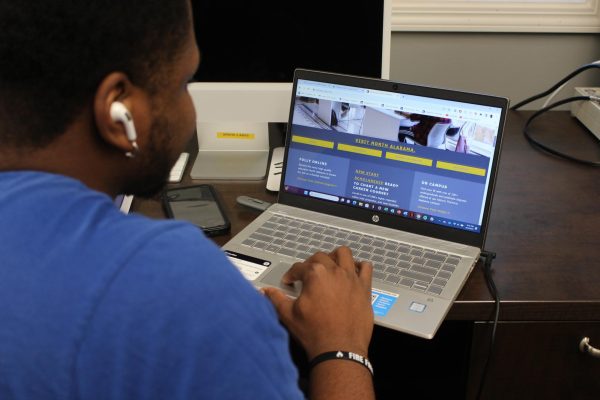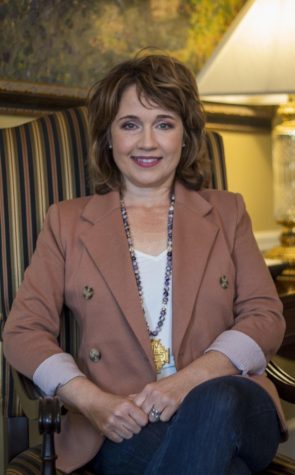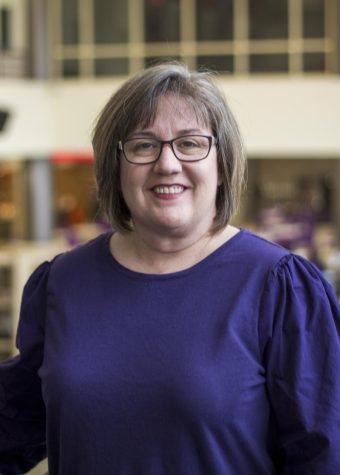SGA president speaks out about D-I decision
June 14, 2011
The text below is the speech that SGA President Ralph Akalonu gave to the UNA Board of Trustees at their June meeting.
I would like to thank the board and the university administration for giving (SGA) the opportunity to represent and be the voice of the students on this board. I always see this as a privilege and not a right that has been given and it is testament to our uniqueness here at the University of North Alabama. Before I go any further, I would like to recognize the SGA members who are here today” Emily McCann, SGA Vice President of Senate and William Riley, SGA Vice President of UPC.
Ladies and Gentlemen, today could potentially be a very important day in the history of our university. Everyone is well aware that our athletic program faces major challenges. We are also well aware of the economic situation in the state and the country. In totality, our university as a whole faces many challenges. But as we plan for the future, we have to make decisions that we know for sure will be beneficial to the university and the students. No one knows what the future brings; we can only speculate on what may or may not happen. We don’t know how long the present economic situation will last or if the university stands to lose another $10 million over the next three years. It is all uncertain, but what we can avoid is to place another financial burden on us.
In all the studies that have been conducted that I have seen, there are no what ifs, only projections of continued growth. This is good, but we know from the repeated announcements from the athletic director that the first few years of moving Division one are going to be rough. How then is the university going to make up when we are past the point of backing out and the assigned institutional spending is not enough and/or projected ticket sales don’t happen or the student fees are not enough, what would happen?
Throughout my entire experience in this conversation of moving to Division I, we have made comparisons of our university with peer institutions on financial information, how much money they raised and how much we can raise. We have made comparisons on size of the campus, average travel time, student fees, institutional spending, whether they were successful or not and so many others. But one thing we have not paid close attention to is support. While many of these universities, whether they were successful or not, had significant support from the major groups, especially students, that is not the case at this university.
This past spring, SGA sought to inform the student body through the Flor-Ala, through forums with the athletic director to gauge the pulse of the students with respect to this decision and they spoke loud and clear in opposition and more especially to the proposed increase in athletic fees in the largest student referendum ever held at this university. In a straight yes or no vote whether to go D-I or not, 58% voted no and 42% voted yes. Of the over 1700 students that voted, 69% voted no to the proposed increase in fees, an overwhelming majority. In every class, students voted overwhelmingly to the proposed fees, 67% of freshman and sophomores voted no, 71% of juniors, seniors, and Graduate Students voted no as well. We also took a poll on how students pay for their tuition, 31%, the largest percentage pay with loans, and 25% pay through the help of a parent or guardian. These are all clear indications that students don’t want this move, at least not now.
Yes, I am not oblivious to the fact that the GSC faces a lot of challenges, but one thing I am sure of is that, if there was no option of Division I, and our current division was the highest an institution could go, in our present predicament we will find a way to remain in this division and be the best we can be. In my opinion, we haven’t exhausted all our options to remain Division II, at least till things start to look better economically. There is no doubt that once a decision is made to go, the university’s attention would shift significantly towards athletics.
While that is not necessarily a bad thing, we have to realize that UNA is first an academic institution and should first strive to be a D-I institution academically before anything else. So the question becomes do we want to be known as an institution that wins championships or do we want to be known as an institution that has a sound and renowned academic program.
For students, our degrees will be worth more in the long run when UNA is producing the Nobel Laureates and making breakthroughs in science and other fields because when you are on an international stage, no one cares about how many championships you have won but the quality of your academic program.
Whatever decision that is made today with regards to D-I, the board should take into consideration the concerns stated by the different constituent groups and allow for more dialogue on the rationale, the process and the proposed benchmarks, because proper preparation prevents pissed poor performance. I believe that everyone wants the best for this university and we have to get everyone on board with any decision that is made in order to ensure the advancement of UNA.












